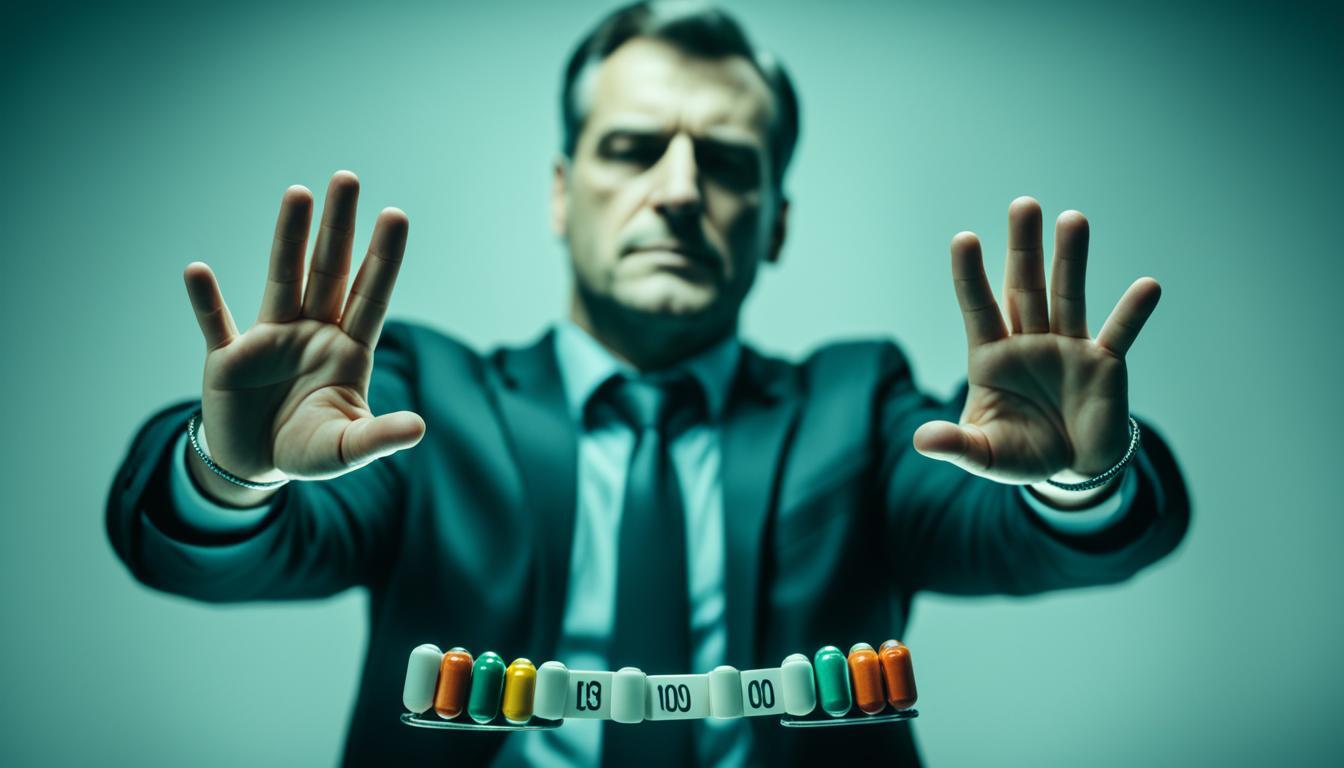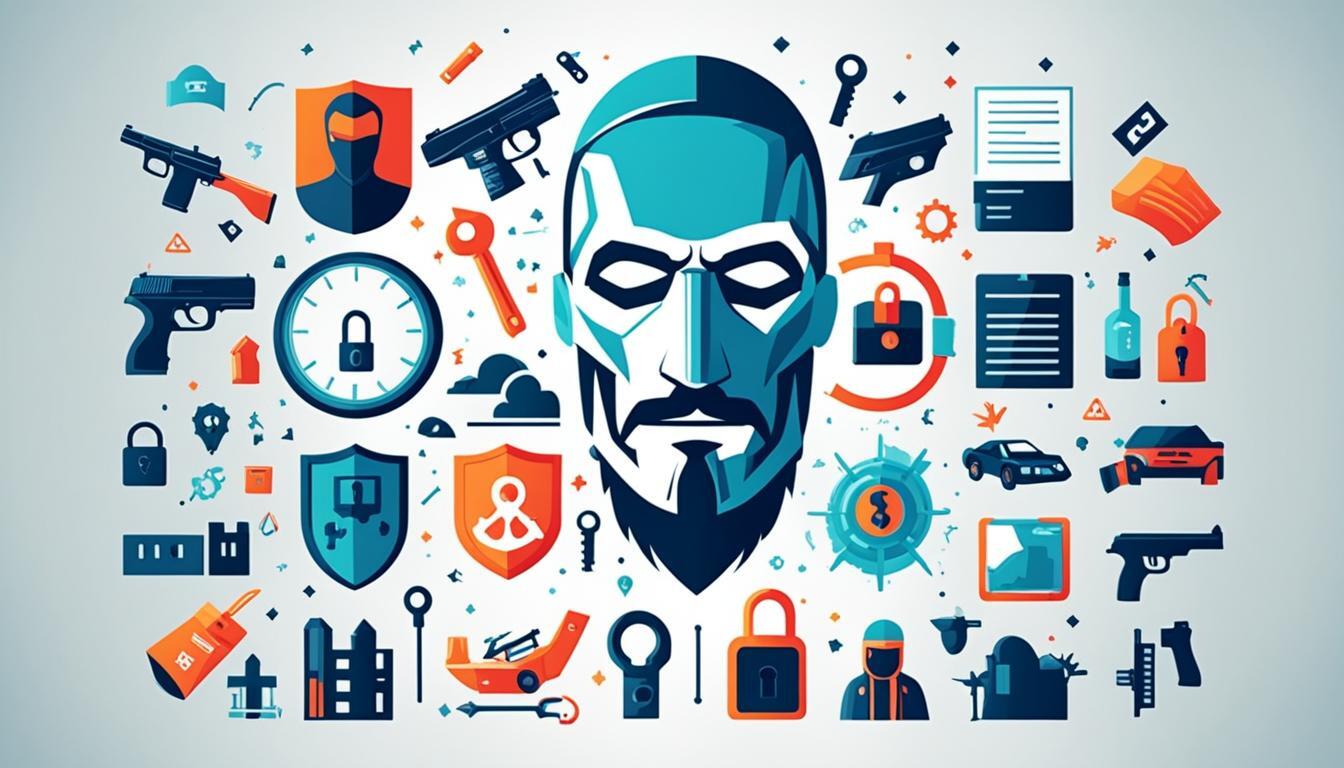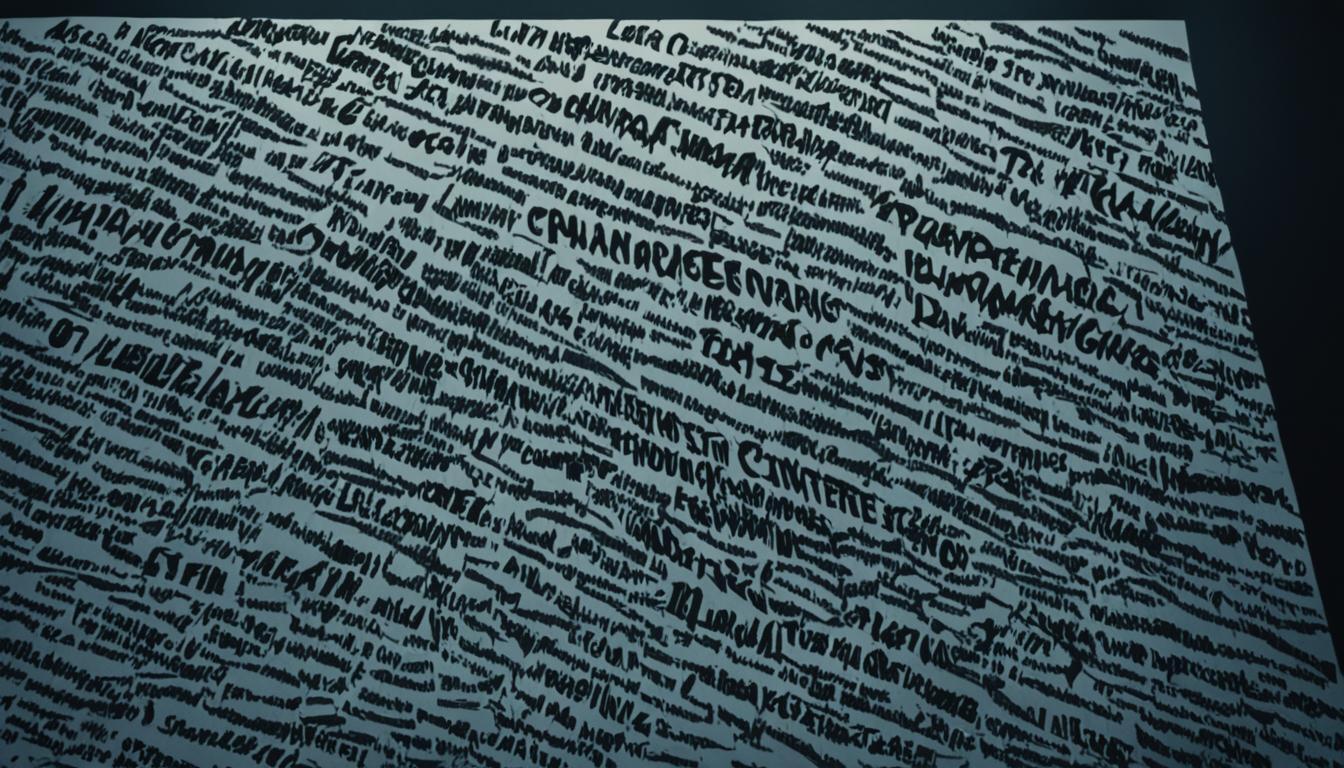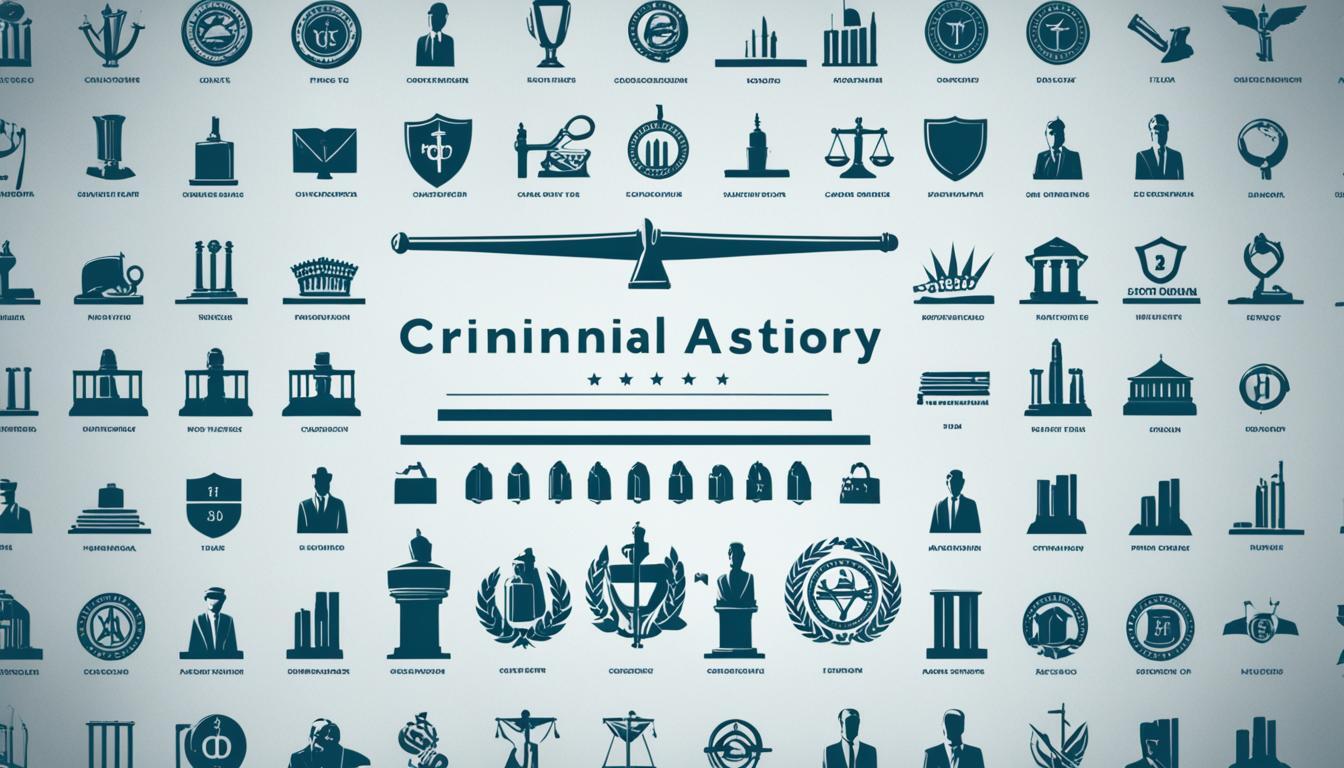Understanding Drug Charges and Sentences Info
Did you know that drug-related offenses account for a significant portion of criminal charges in Canada? In fact, according to recent statistics, drug offenses make up approximately xx% of all criminal charges across the country.
These startling numbers highlight the scale and impact of drug-related crimes in our society. Whether it’s drug possession, trafficking, or production, individuals involved in drug offenses face severe penalties that can have long-lasting repercussions on their lives.
In this article, we will delve into the details of drug charges and sentences in Canada, shedding light on the different types of offenses and the corresponding penalties. Understanding the legal implications of drug crimes is crucial for both individuals facing charges and those seeking to advocate for justice.
Key Takeaways:
- Drug offenses account for a significant portion of criminal charges in Canada.
- Engaging in drug-related crimes can have long-lasting repercussions on individuals’ lives.
- Understanding drug charges and sentences is crucial for both defendants and advocates.
- Legal penalties vary depending on the type of offense and the severity of the drug involved.
- Reading and educating oneself about drug laws is essential for maintaining legal compliance.
Impact on Prosecutions and Negotiating Plea Agreements
The implementation of mandatory minimum penalties (MMPs) for drug offenses has significant implications for Crown counsel during plea negotiations. As a legal professional, I understand the pressures that arise when navigating the consequences of drug charges and the need to negotiate plea agreements effectively.
In order to uphold the integrity of the MMP regime, Crown counsel must approach plea negotiations with caution and transparency. It is crucial to present all provable facts to the court, ensuring that the full scope of the offense is considered in the sentencing process.
While plea agreements can be utilized to resolve cases efficiently, they should not be used to undermine the MMP regime. Plea agreements that aim to avoid an MMP should only be considered if the evidentiary threshold for prosecution is not met. This approach ensures that the penalties imposed align with the severity of the offense.
It’s important to note that prior consent from the Chief Federal Prosecutor is required for staying or withdrawing charges with an MMP or accepting a plea to a lesser offense. This oversight helps maintain consistency and ensures that plea negotiations are conducted within the parameters of the law.

When navigating drug charges and plea negotiations, it’s crucial to understand the implications they have on both the accused individual and the legal system as a whole. By approaching negotiations with integrity and adhering to the MMP regime, Crown counsel can help ensure that justice is served and the consequences of drug offenses are appropriately addressed.
Factors Affecting Drug Offense Penalties
When it comes to drug offenses, the penalties can be influenced by several important factors. These factors include aggravating circumstances, sentencing criteria, and the classification of the drug charges.
Aggravating factors play a significant role in determining the severity of the penalties. These factors can include involvement with a criminal organization, the use or threat of violence, the use or threat of weapons, prior convictions, abuse of authority, and offenses committed in or near schools or prisons. The presence of aggravating factors can lead to more severe penalties for individuals convicted of drug offenses.
Sentencing criteria are also taken into account when determining drug offense penalties. The quantity and type of drugs involved in the offense are crucial factors. The Controlled Drugs and Substances Act provides a detailed schedule that categorizes drugs into different classes for sentencing purposes. This classification system helps guide the courts in determining appropriate penalties based on the nature of the drug charges.
Here is an example of how drugs may be categorized under the Controlled Drugs and Substances Act:
| Drug Class | Examples |
|---|---|
| Class 1 | Cocaine, Heroin, Methamphetamine |
| Class 2 | Marijuana (over specified limits), MDMA |
| Class 3 | Ketamine, Anabolic Steroids |
| Class 4 | Prescription Drugs |
By considering aggravating factors, sentencing criteria, and drug charge classification, the courts aim to impose penalties that reflect the nature and gravity of the offense. It is important to consult legal professionals who specialize in drug offenses to navigate through the complexities of the legal system and protect your rights.
Drug Offenses in Alberta
When it comes to drug offenses, Alberta has strict laws and penalties in place. The Controlled Drugs and Substances Act governs drug-related crimes in the province, and individuals found guilty of drug offenses can face severe consequences.
Drug Possession Penalties: Possessing illicit drugs in Alberta can result in fines and imprisonment. The severity of the penalties depends on the type and quantity of drugs involved, as well as the circumstances surrounding the offense.
Drug Trafficking Sentences: Drug trafficking is a more serious offense that can lead to higher sentences. The penalties for drug trafficking in Alberta are determined by various factors such as the type and quantity of drugs being trafficked, the role of the offender in the drug operation, and the presence of aggravating factors.
Drug Distribution Charges: Distributing drugs is also a significant offense in Alberta, and individuals involved in drug distribution can face hefty penalties. The severity of the charges depends on the type and quantity of drugs being distributed, as well as the intentions and actions of the offender.
Given the severity of drug offenses in Alberta, it is crucial for individuals facing drug charges to seek legal representation. A skilled lawyer can provide guidance, advocate for their rights, and help navigate the legal process effectively.

| Drug Offense | Possession Penalties | Trafficking Sentences | Distribution Charges |
|---|---|---|---|
| Marijuana | Fines and imprisonment | Higher sentences | Hefty penalties |
| Cocaine | Fines and imprisonment | Higher sentences | Hefty penalties |
| Heroin | Fines and imprisonment | Higher sentences | Hefty penalties |
| Methamphetamine | Fines and imprisonment | Higher sentences | Hefty penalties |
Drug Addiction in Alberta
Alberta is facing a significant drug addiction problem, with opioids being a major concern. The province has witnessed a high number of opioid-related deaths, prompting the government to take action to address this crisis.
Fortunately, there are addiction treatment programs and services available in Alberta to help individuals struggling with drug addiction. These programs offer a range of treatment options, including detoxification, residential treatment, and outpatient programs.
Detoxification programs aim to help individuals safely and effectively withdraw from substances while managing withdrawal symptoms. Residential treatment programs provide a structured and supportive environment for individuals to focus on their recovery. Outpatient programs offer flexibility, providing addiction treatment services while allowing individuals to continue their daily lives.
These addiction treatment programs in Alberta are designed to address substance abuse and provide comprehensive support for individuals seeking recovery. They encompass evidence-based therapies, counseling, support groups, and life skills training to facilitate long-term sobriety and improve overall well-being.
If you or someone you know is struggling with drug addiction in Alberta, it is important to reach out for help. Contact one of the addiction treatment programs or seek guidance from a healthcare professional to explore the available options.
Criminal Law and Drug Offenses
Drug offenses in Canada are governed by the Controlled Drugs and Substances Act and are considered criminal offenses. The possession, trafficking, and production of controlled substances are all criminal offenses under the Criminal Code of Canada.
Individuals facing drug charges need to understand their legal rights and seek legal representation to protect their interests. Criminal law in drug offenses is complex, and having a knowledgeable lawyer by your side can make a significant difference in the outcome of your case.
Consequences for drug offenses can vary depending on several factors, including the type and quantity of drugs involved and the circumstances of the offense. Penalties may include fines, imprisonment, probation, or a combination of these. It is crucial to have a strong defense strategy to mitigate the impact of these consequences.
By working with an experienced criminal defense lawyer who specializes in drug offenses, you can navigate the legal process effectively and ensure that your rights are protected. They will analyze the details of your case, gather evidence, and develop a defense strategy tailored to your unique circumstances.
Understanding Your Legal Rights in Drug Offense Cases
Knowing your legal rights is essential when facing drug charges. Your lawyer will educate you on the legal frameworks related to drug offenses, including search and seizure laws, evidentiary requirements, and the burden of proof.
Additionally, they will explain your right to remain silent, the right to be free from unreasonable search and seizure, and the right to a fair trial. Understanding these rights will empower you to make informed decisions and play an active role in your defense.
Dedicated legal representation will work relentlessly to protect your rights, challenge any constitutional infringements, and advocate for the best possible outcome in your case. They will ensure that you receive fair treatment throughout the process and help you navigate the complexities of the criminal justice system.
Seeking legal representation when facing drug charges is crucial to safeguarding your legal rights and achieving the best possible outcome. With their expertise and experience, a reputable criminal defense lawyer will guide you through every step of the legal process, providing you with the support and representation you need.
Understanding Possession and Drug Schedules
When it comes to drug charges, understanding the definition of drug possession and the associated penalties is crucial. In Canada, drug possession is defined under the Controlled Drugs and Substances Act and can include personal possession, constructive possession, and joint possession. It is important to note that possession can apply to both illegal drugs and controlled substances.
The severity of possession penalties depends on the drug schedule in which the substance falls. Drugs are categorized into different schedules, such as Schedule I, II, and III. Each schedule carries specific penalties for possession, ranging from fines to imprisonment. The quantity and type of drug involved also play a role in determining the severity of the penalties.
When facing drug possession charges, it is essential to understand the definitions and schedules established by the law. Being aware of the potential consequences can help individuals navigate the legal process effectively and make informed decisions. Seeking legal representation is advised to ensure that your rights are protected and to receive guidance tailored to your specific situation.
- The Role of Police in Community Safety & Unity - October 6, 2025
- Quebec Police Officer Salary Insights 2023 - July 13, 2025
- Canada Arrest Protocol: What Police Say Upon Arrest - June 12, 2025




















Post Comment